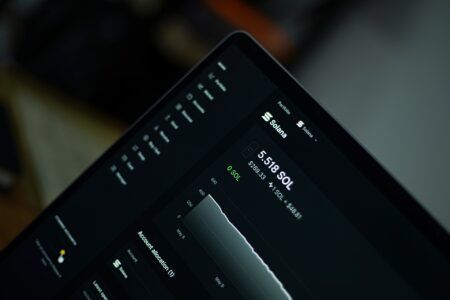Bitcoin Gold (BTG), one of 44 Bitcoin forks to date, has recently been hit with a 51 percent attack that saw bad actors double spend coins from its blockchain. Notably Bitcoin Gold’s network isn’t as secure as the BTC network, which saw the malicious actors gain control over it.
Reportedly, the hacker(s) managed to control most of the computing power on Bitcoin Gold’s blockchain. If an entity does this, by holding the majority of a blockchain’s hashrate, then it can manipulate transactions on said blockchain. This type of scenario is called a 51 percent attack.
A blog post by Bitcoin Gold’s developers states that the first attack occurred on May 16, but now seems to have stopped. The Bitcoin Gold team has advised:
“An unknown party with access to very large amounts of hashpower is trying to use ‘51 percent attacks’ to perform ‘double spend’ attacks to steal money from exchanges. We have been advising all exchanges to increase confirmations and carefully review large deposits. There is no risk to typical users or to existing funds being held.”
An $18 Million Loss
A Bitcoin Gold wallet linked to the double spend scheme has received over 388,000 BTG, which is currently worth about $18 million, according to data from CryptoCompare. Most of the coins have now been transferred to various other addresses and only about 13,000 BTG are left in it.

The Bitcoin Gold team has revealed that “one of the targeted exchanges reported that they strongly believe this attacker attempted to hit them with a double-spend of BTC in the past.” The exchange claimed to have “found many associations between the accounts.”
In light of these attacks, several cryptocurrency exchanges are now requiring more confirmations for large volume transactions. Reportedly an upgrade to Bitcoin Gold’s mainnet scheduled for next month is set to stop ASICs from being able to mine the cryptocurrency.
Double Spending Through 51% Attacks
Traditional financial institutions such as banks have had reservations when it comes to processing transactions on a blockchain due to potential 51 percent attacks. Some organizations have expressed concerns that Chinese authorities could possibly instruct local cryptocurrency miners to act collectively, in order to orchestrate a 51 percent attack.
While this would be hard to do on Bitcoin’s blockchain because of its very large number of miners throughout the world, it wouldn’t be as hard on small cryptocurrencies like Bitcoin Gold.
One of the problems that arise due to 51 percent attacks is that of double spending. This happens when the same coin is used on multiple occasions. This type of attack sees start to lose trust in the affected platform.
The double spend problem has now reportedly become an issue on Bitcoin Gold’s blockchain, as noted by the platform’s director of communications Edward Iskra. According to Iskra, an entity has been controlling over 50 percent of Bitcoin Gold’s mining power and took advantage of it.
Iskra explains that cryptocurrency exchanges that accept a large amount of coins can be used to trade fraudulently created coins for other cryptocurrencies. The attacker can then use the same Bitcoin Gold (BTG) by simply depositing it on an exchange again. He added:
“There is no risk to typical users or to existing funds being held. The only parties at risk are those currently accepting large payments directly from the attacker. Exchanges are the primary targets.”
Bitcoin Gold is not the only blockchain that has been exploited by hackers. Verge (XVG) has been targeted a number of times as well, resulting in millions worth of XVG being stolen. Electroneum and Monacoin have also experienced 51 percent attacks.








